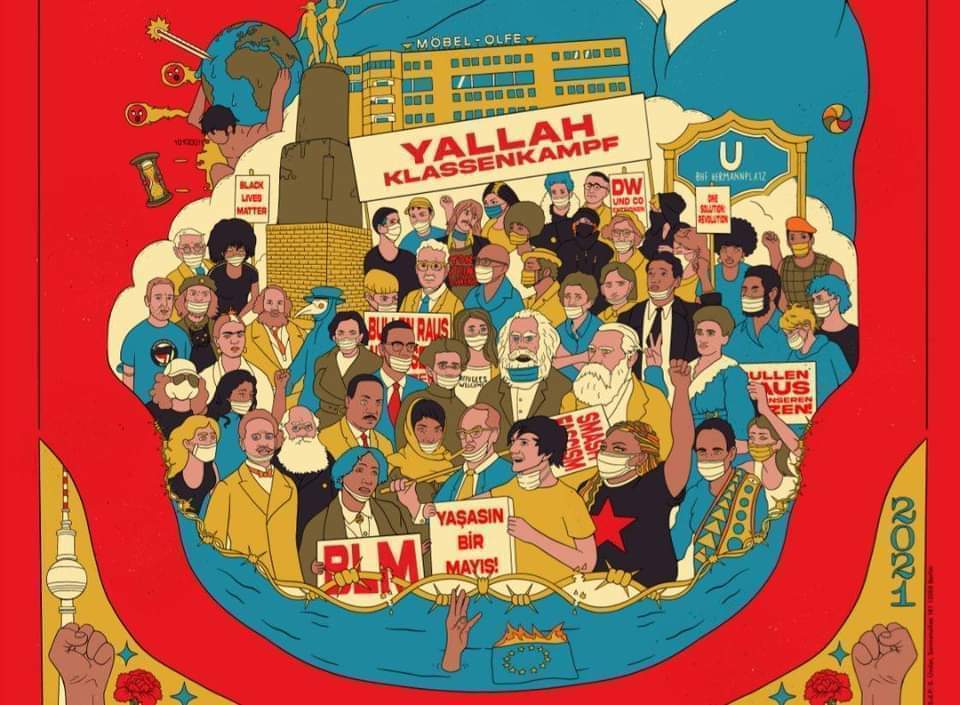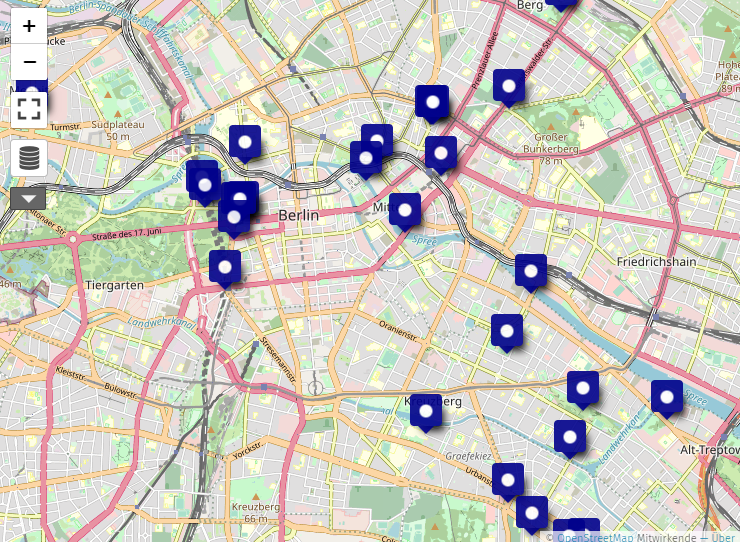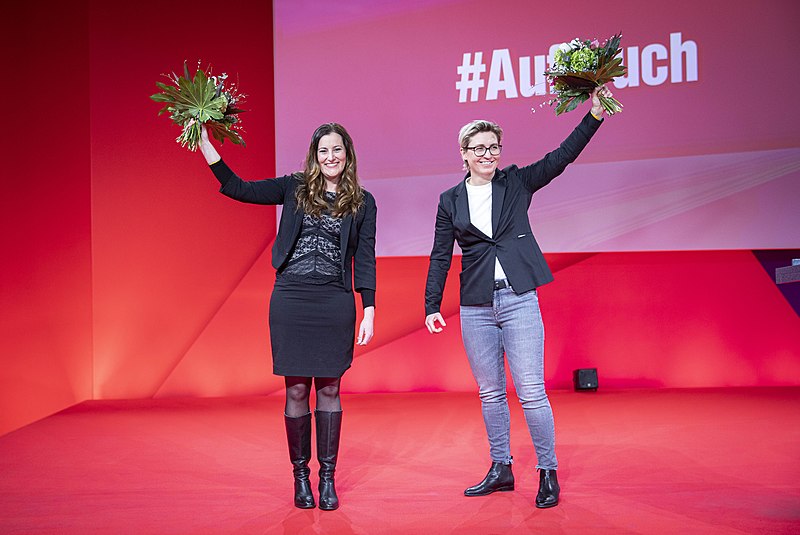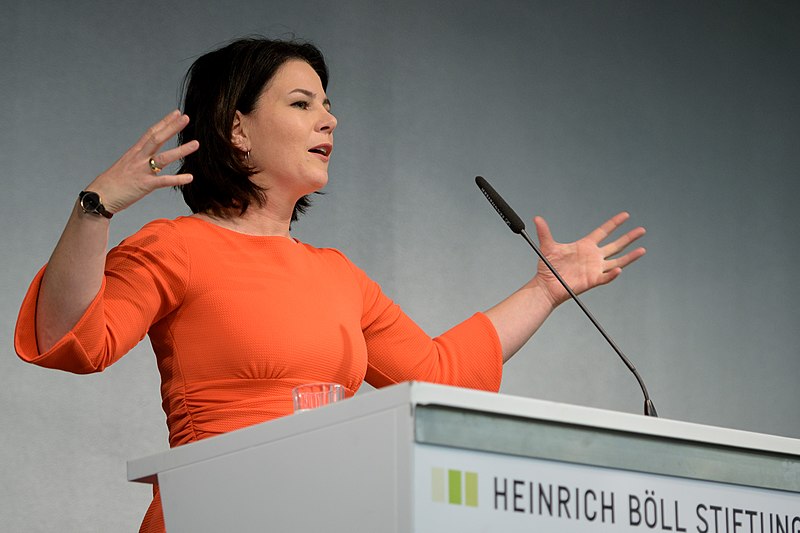In recent months the air in Germany has been buzzing. But the fog, thick as in old London, was not humid but political – and medical.
The thickest was Covid fog. Blanketing some two-thirds of the news, the details changed daily, even hourly. How many new cases, how many deaths, who could go out when in what size groups and till what hour, where and when we could buy what or eat out, which state wanted tougher restrictions, which wanted easier ones, whether decisions should be by the federal cabinet, the Bundestag legislature or every state for itself, which vaccine was 100% safe, which might not be and why, when house doctors could vaccinate and how soon they’d get enough vaccine for which age and patient group…
A new law has now been approved, uniform for the whole country: the level of infection past which no-one can leave their home after 10 PM – except dog-owners, single joggers or strollers (also the homeless, I guess). Also at which level schools must again close down (except for 12th grade diploma exam students). All the rules have holes, most states disapprove of some clause, or maybe another. For me, the best reaction is: turn the damned radio off – ban all electronic penetration. Then read a book (now I’m back to Shakespeare). Or go to bed!
Weekend demonstrations keep popping up like whack-a-moles, with (illegally) no masks or distancing, hit by police attacks here or tolerated there. They insist that Covid is a fraud, a plan to permanently limit freedom of speech, writing, or assembly, outdoors or even inside one’s home. A few whistle-blowers, far-leftists of high standing, complain that government agencies and sites like Facebook are censoring them – certainly a worrisome menace. Some protesters and deniers claim it’s all a plot by pharma-bigbiz (steered most likely by Bill and Melinda) to gain more wealth and power. The AfD and other far rightists hook onto such demonstrations along with kooky QAnoners, anti-Semites and anti-vaxxers (even against measles and polio shots). So what is true? Who’s crazy – or lying? Again I’m tempted to crawl back to bed with blankets over my head! (And after all, I’m doubly vaccinated!)
Two politicians, far from covering their heads, fought like elk bulls over which “Christian” candidate should run to succeed Angela Merkel after the September 26 election. Armin Laschet, 60, the top man in Germany’s most populous state, North Rhine-Westfalia, and newly-chosen head of the Christian Democratic Union, should have won out by default. But then Markus Söder, 54, jumped in. The top man in Bavaria, Germany’s biggest state in area and with a “Christian”party of its own, the Christian Social Union, a unique local partner that usually agrees and votes with its big sister. But occasionally it acts independently – even further to the right. It’s as if the Lone Star State had its own Tea Party, usually but not always voting with the GOP in the other states. The Bavarian Söder wanted to be the joint candidate of both parties, since the polls showed him far ahead in popularity in all of Germany. It didn’t quite come to a duel but words like “treachery” were mumbled. When the fog finally lifted the sarcastic Söder, who facially recalls Mephistopheles, lost out to the strong Laschet machine.
After a tight-lipped smile and “congratulations!” he backed off into the sulking corner. As for differences on plans or policies, neither man seemed to have any. Or if they did, they didn’t bother to reveal them.
The battle cost the not-so-united “Christian Union” heavily in its sagging popularity standing. When last I looked – one of millions who watch these polls every day – they had dropped from their usual top-of-the-pile mid-30% average, not challenged since 1949, down to a measly 23%.
But this time they will hardly be endangered by their traditional rival, the Social Democrats, or SPD, with whom they still share a wobbly, contradictory coalition. Four years of such weak-kneed non-opposition, required to keep this mismatch alive (and save good cabinet positions) has cost the SPD dearly among their union-based working class voters; the polls give them only 16 % – far from any hopes for first place.
The SPD candidate in the race to become chancellor, facing lukewarm CDU-choice Laschet, is vice-chancellor/finance minister Olaf Scholz. Sadly for him, he was caught napping at his ministerial oversight job when a fly-by-night finance firm with an imposing central building but only cubbyhole offices in South Asia suddenly disappeared, along with nearly 2 billion Euros, hoodwinking a host of hungry investors and supposed monitors, most prominently Olaf Scholz himself. Despite this and a second, possibly worse collusion scandal, he is still in the race.
For the first time in Germany it is not the SPD that is hot on CDU heels but the Greens (officially “Bündnis 90-Die Grünen”), and now they too have chosen a candidate for the coming joust, though not exactly a knight in shiny armor nor the leader many had expected, who was dropped unceremoniously. It is rather his co-chair, a youthful-looking mother of two, whose oratorical style sounds much younger than her 39 years. She was chosen, it was whispered, less for political reasons than because of her freshness, so different from her stodgy Establishment opponents. Yet Annalena Baerbock’s views seem less refreshing than her podium presence.
The Green party was at first an iconoclastic bunch, leftish, even radical. Its deputies, often women, showed up in the Bundestag knitting or even wearing woolen sweaters, shocking the conservatives. While stressing environmental causes, it also spoke up vigorously for women’s rights, gay rights, and disarmament.
But its radicals grew older, and many got rewarding professional jobs. Its fundamentalist wing (“fundis“) lost out to the pragmatic “realos“ (realists). When it joined the SPD in a federal coalition in 1998, with ”realo” Joschka Fischer as vice-chancellor and foreign minister, its high principles nose-dived: it agreed to sharp cuts for the jobless, a later retirement age, lower taxes on the wealthy. And incredibly, devastatingly, it took full part in the NATO bombing of Serbia. Thus Germany, finally united and with no GDR impediments, felt free to make war again.
The Green retreat has continued ever since. In Hesse, their cabinet ministers, in a coalition with CDU Christians, joined in defying all protests against felling part of a beloved forest to make way for an extra stretch of autobahn. In Baden-Württemberg, Winfried Kretschmann, 72, Germany’s one and only Green prime minister (and a Maoist in his wild student years), maintains his coalition with the CDU and his friendship with the Daimler-Benz bosses in Stuttgart, his capital.
Annalena Baerbock could become Germany’s next chancellor. What does she think about the most urgent issue facing the world? Does she want more or less confrontation? And military spending?
Like a majority of Germans, most of the Green party members oppose any steps leading towards war, and Baerbock can’t ignore them. So no, maybe no armed drones, but yes, “steps in the direction… of a future European army.” And when Macron in France calls for “robust” European military measures she favors “an earnest response. And that means talking about foreign deployments. That won’t be simple. But we can’t duck away from it.”
What about ducking away from German participation in the Afghanistan war? In a recent vote to stay till the very end the Greens were split again: 17 in favor, 28 opposed, 12 abstained. And Baerbock?
“In all the years I have always abstained, just exactly because of this ambivalence, and that’s politics, after all. Politics are highly complicated… Life is, after all, not only black or white.”
But she is hardly undecided on one theme. “Germany urgently needs a clear foreign policy position toward the Russian regime.“ That includes tougher sanctions against the “Putin system” and no completion of the German-Russian gas pipeline through the Baltic. Not for any environmental reasons but because it would counteract “the geo-strategical interests of the European Union.“
What are those interests? No, she does not like having A-bombs stored (illegally) in Germany, she says, ready at any moment to be flown eastward on the adjacent German planes. But then, she adds, “We cannot simply say we will send the atomic weapons back to the USA…Most important now is to increase pressure against Russia.”
Despite all old pacifist leanings, the leading Greens have become the loudest German advocates of such bellicose views, sharing them with leaders in other main parties on both sides of the Atlantic, eager co-passengers aboard the mighty Pentagon-Northrup-Raytheon-Rheinmetall bandwagon.
It has become an extremely dangerous vehicle! Defender 21 is the misleading name for a wide range of military maneuvers, lasting until June, and involving 30,000 American soldiers flown across the ocean to join with units from 25 other nations and rehearse war in twelve of them, but especially in Estonia, Romania, and Bulgaria. Germany will act as the central turntable, re-enforcing tracks and bridges to withstand long trainloads of 60 to 80-ton tanks and other utensils for “Defender 21.”
Gen. Christopher G. Cavoli, commander of the US Army in Europe, in describing the exercise stressed ”the factor of demonstrating power…of showing partners and allies that we are ready at all times” to “transfer varied troop sectors quickly and safely across long distances.” Of course this is not directed against anyone, he assured possible critics. “It is no accident, however, that the troop movements are from West to East – and the individual maneuvers are in regions close to Russia.”
General Cavoli stressed the “special importance of East Germany and Poland” – thus perhaps providing background on the motivation for those “peaceful revolutions” some decades ago.
In Germany, only one party in the Bundestag has opposed such maneuvers, and all its deputies vote against any military engagement in Afghanistan, Mali or anywhere else, and against more and more ever deadlier weapons, whether for the Bundeswehr or for countries like Saudi Arabia (to name the deadliest). Attempts to water down this basic position in the LINKE have always been voted down and ruled out, once again at its recent national conference.
But the LINKE could face a very controversial choice after the September elections, with hopes for some and fears for others in the party. With the CDU sagging so markedly, and the Greens, who despite all compromises and ambiguities are higher than ever before in the polls (now also at 23%), it could become possible for a Green-Social Democratic-LINKE coalition could attain a majority large enough to form a government, as in Berlin and Thuringia on a state level. The LINKE, whose polls have sagged to 7-8% (from an earlier 10%), would be needed for this, but would be weakest of the trio. And on a federal level both Greens and Social Democrats would insist that it drop its opposition to foreign deployment and NATO.
Some in the LINKE would agree to such a “compromise” for a chance at recognition and two or three comfortable cabinet seats (and good staff jobs that go with them). But for others this would mean that the LINKE would lose its meaning, its raison d’etre as the one known Party of Peace. And experience has also shown that after such a presumed victory it would end up not just meaningless but weaker than before.
The issue is still very hypothetical; the Greens, if they come out strongest, might well turn elsewhere and rightwards for partners. But it continues to divide members and leaders of the LINKE, just like another issue, once again involving the party’s best orator and best-known member, Sahra Wagenknecht. She was just voted in to head the slate for deputies, thus gaining most probable re-election in her present home state, North Rhine-Westfalia. A strong minority opposed her, in part because she has just published a book opposing any stress on “identity politics,” including ethnic, gender and ecological groups, instead of concentrating on winning long-established (and largely white “German”) working-class forces who have trended to the right, like many Trump voters in the USA.
The issue is truly complicated – and truly divisive. Will it draw attention from the fight for peace, and from the militant campaign to confiscate (for a “sensible” price) the biggest real estate corporations now buying up and gentrifying Berlin and other German cities? The quarrels about the Covid measures are also divisive enough. All more than enough material for my next Berlin Bulletin. But for now it’s back to Shakespeare and a safe bed!
++++++++++++++++++++++++
For more on me, buy “Crossing the River” (U of Mass Press) or “A Socialist Defector: From Harvard to Karl-Marx-Allee” (Monthly Review Press)




